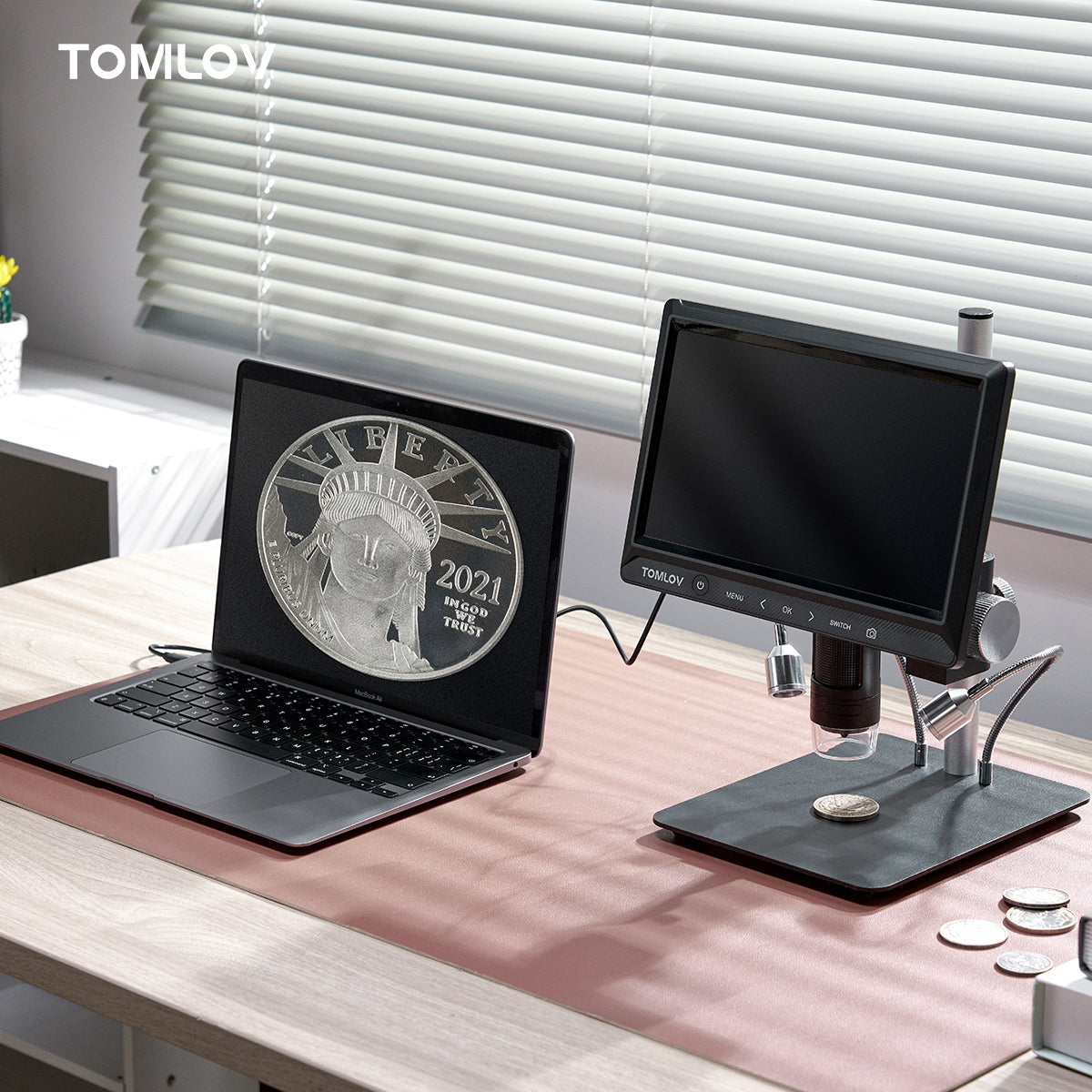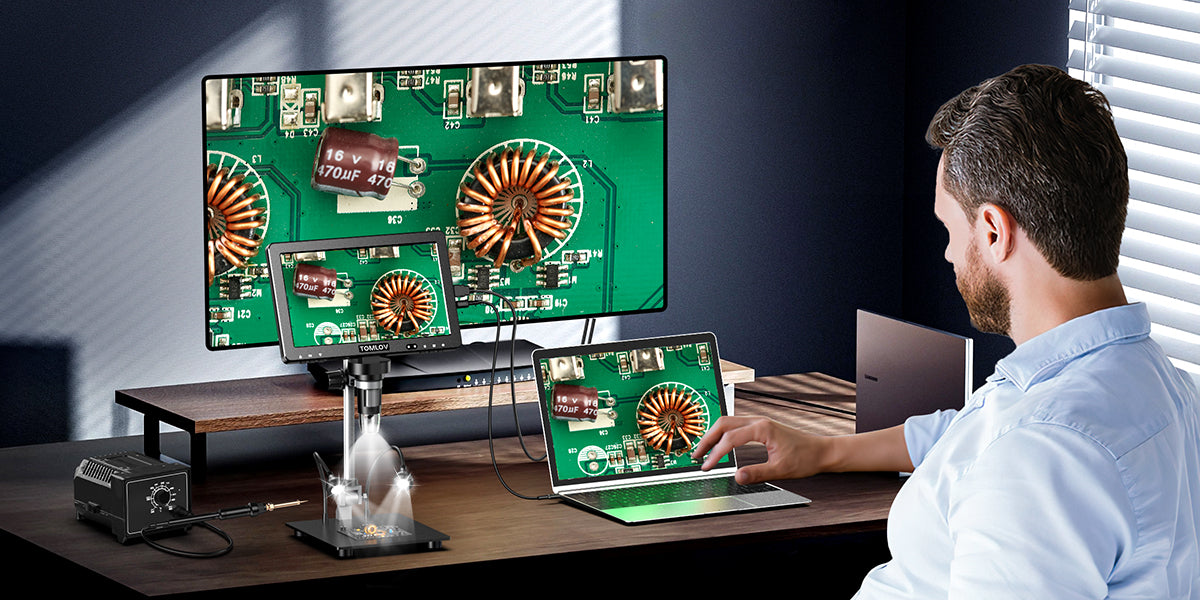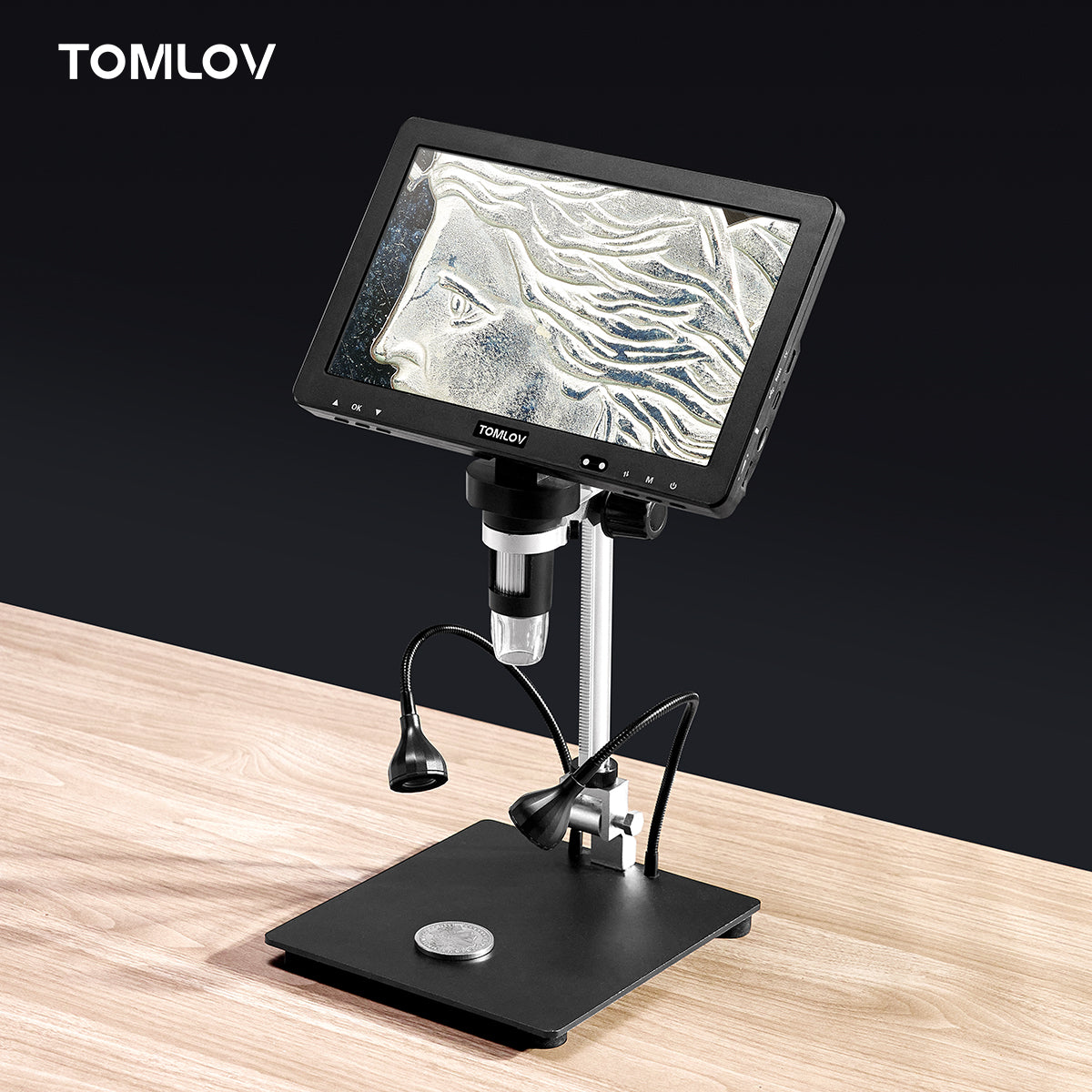The Essentials of Digital Microscopy for Coin Searching
Understanding Digital Microscopes: How They Work For Coin Collecting
For coin collectors, digital microscopes are key tools. They magnify coin details to unveil mint marks, errors, and signs of wear. Such details help assess coins' rarity and value. A digital coin microscope works by using a camera to capture images. It then displays these on a computer or screen. LED lights provide clear illumination, aiding close inspection. This set-up allows numismatists to document and share their findings easily. They can also compare coins, which helps in authentication and grading.

The Role of Digital Microscopes in Coin Valuation and Authentication
Digital microscopes are key tools in coin valuation and authentication. Their high-resolution imaging lets numismatists see minute details. This is vital for detecting forgeries and determining a coin's condition. Coin experts can verify mint marks, dates, and even faint wear patterns. These factors affect a coin's rarity and worth. Thus, a digital coin microscope is essential for accurate appraisals.
Key Features of Top Digital Microscopes
Essential Specifications of Coin Microscope for Numismatic Use
When choosing a digital coin microscope for numismatic purposes, certain specs are key. A high magnification range, often between 20x-1000x, offers detailed views of coins. Image quality relies on sensor resolution, with 5-megapixel being a good starting point. Adjustable LED lighting is essential for clarity under various conditions. Look for microscopes with fine focus controls to inspect minute details. USB connectivity allows for image transfer to computers for further analysis. Finally, consider software compatibility for image capture, processing, and measurement capabilities.

Portability and Ease of Use: Considerations for Collectors
When selecting a digital microscope for coin collecting, ease of use and portability are crucial. Here are key factors numismatists should consider:
- Weight and Size: A lightweight, compact design makes it easy to move and store the microscope.
- Battery Life: For on-the-go use, a long-lasting battery is important.
- User Interface: Simple, intuitive controls allow for quick learning and efficient use.
- Software Compatibility: Ensure the microscope's software works well with your computer or device.
- Adjustable Stand: A flexible stand helps view coins at different angles with ease.
- Integrated Lighting: Adequate and adjustable lighting is necessary for clear imagery.
These features will help collectors handle their microscopes with less hassle, allowing more time to focus on the fascinating details of their coins.
Choosing the Right Digital Microscope for Your Coin Collection
Comparative Review: Digital Microscopes in the Market
For collectors looking to purchase a coin microscope, a comparative review is vital. Here’s a breakdown of popular digital microscopes in the U.S. market:
- Celestron Amoeba Dual Purpose Digital Microscope: A versatile choice for beginners, featuring a built-in camera for easy coin imaging.
- Carson eFlex Digital Microscope: Offers an adjustable stand and built-in LED lighting, ideal for detailed examination of your coins.
- Plugable USB 2.0 Digital Microscope: Boasts a flexible arm stand and high magnification levels; suitable for novice and seasoned collectors.
- Dino-Lite USB Digital Microscope AM4113T: Known for its professional output, it provides exceptional image clarity, and is user-friendly.
Each of these models has its specific perks, offering a range of features that meet different numismatic needs. It's important to compare these options carefully to determine which digital microscope aligns best with your collecting goals.
Investing in Quality: Cost vs. Value for Numismatists
Numismatists know that a good digital coin microscope is key for their hobby. Yet, cost is a big factor. It’s tempting to buy a cheap model to save cash. But, low quality can mean missed details on coins. This might lead to wrong valuations. High-end microscopes can be costly. Still, they often provide better magnification and lighting. This results in clearer images. You must weigh the cost against the value you get. Think about how often you'll use the microscope. Consider what features you really need. Don’t forget to factor in future needs. A more costly tool may be a wise long-term choice. Your investment should depend on your level of collecting. For pros, spending more can be worth it. But hobbyists might be okay with a mid-range option.
Keeping Up with Technology: Updating and Accessories for Optimal Performance
When selecting a digital coin microscope, consider future tech upgrades. Look for models that support software updates. This ensures your microscope stays current with imaging tech. Also, check the availability of accessories. Extra lenses or lighting options can enhance your microscope's performance. With the right updates and accessories, your microscope can serve you well for years to come.




1 comment
James Neria
Where can I buy this type of microscope
Leave a comment
All comments are moderated before being published.
This site is protected by hCaptcha and the hCaptcha Privacy Policy and Terms of Service apply.